8 Healthy Carbohydrates to Include in Your Breakfast for Effective Weight Loss
When it comes to breakfast it’s important to make choices that give you steady energy, keep you full, and avoid blood sugar spikes that can leave you feeling hungry, tired, and craving more sugar soon after. Choosing the right food, especially high in fiber carbohydrates sets the tone for a productive, energized day. To help you out, we’ve rounded up eight of the best carbs to eat for breakfast weight loss .
Fiber is a type of carbohydrate, like sugar and starch, and it plays a key role in control appetite and support healthy digestion making it a wonderful choice when working on weight loss. Did you know that there are two types of fiber – soluble and insoluble? Soluble fibers in particular have been studied extensively for their role in supporting weight loss and stabilize blood sugar levels. This is because it forms a gel-like substance in the gut that slows down digestion, helps you feel fuller longer and avoids rapid blood sugar spikes.
Carbohydrates are the body’s preferred fuel source, providing quick and readily available energy. Pairing these carbs with protein and some healthy fats can further slow digestion and keep you full longer, making it easier to avoid overeating.
If you’re focusing on weight loss, consider adding these eight nutritious, high-fiber carbs to your breakfast lineup. Experiment with these options to find your favorites, and remember that small, sustainable changes can have a big impact.
Oats
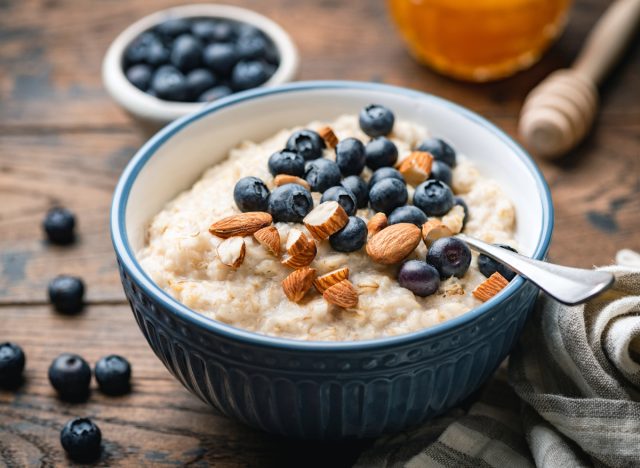
Oats is a breakfast staple for good reason. The contains beta-glucan a type of soluble fiber that slows digestion and helps control appetite. This makes oats an ideal choice for breakfast, as they provide long-lasting energy and satiety.
Try combining oats with Greek yogurt for extra protein, and let them soak overnight in the fridge for a convenient breakfast.
Black beans
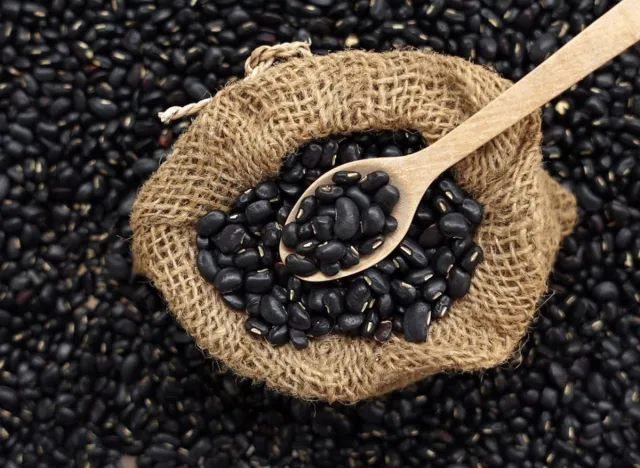

Beans is a nutritional powerhouse, rich in both starchy carbohydrates and fibre. Black beans, in particular, are a popular choice worldwide and are loaded with minerals like iron, manganese and folate to support overall health. While black beans contain natural compounds called phytates that can reduce mineral absorption, soaking or choosing canned beans can help lower these phytate levels.
Black beans are versatile and can be added to an omelet, rolled into a breakfast burrito or incorporated into chilaquiles for a delicious and filling start to the day.
Buckwheat
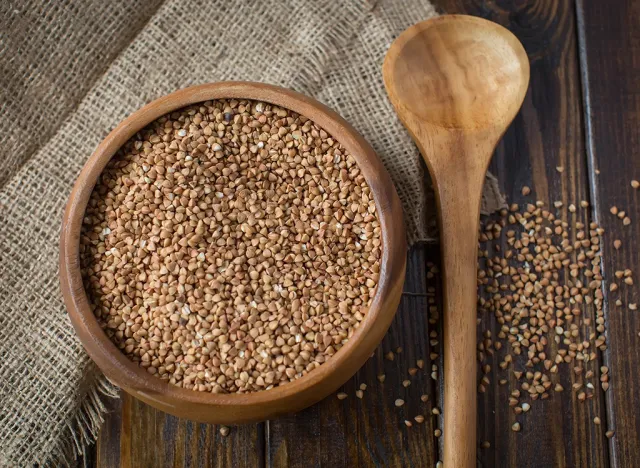

Despite the name, buckwheat is gluten-free and is actually not related to wheat. This seed is packed with fiber, providing more than 4 grams in just ¼ cup of raw grits. Fiber is essential for managing blood sugar and cholesterol levels, both of which are important for weight loss and heart health.
Buckwheat can be cooked on the stovetop as oatmeal or ground into flour to use in pancakes and other baked goods for a hearty breakfast option.
Avocado
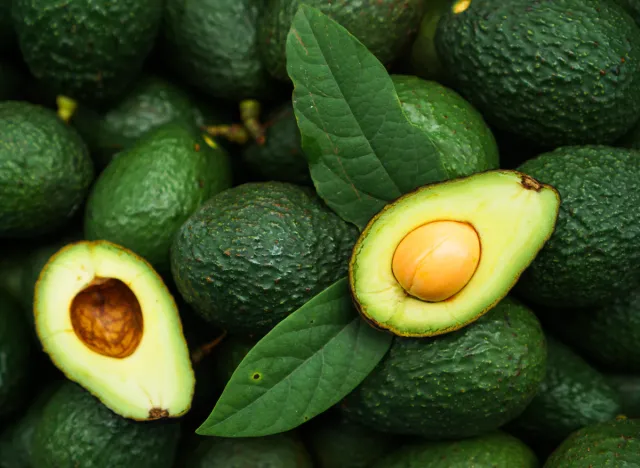

Technically a fruit, avocados may seem like an unexpected choice for weight loss because of their calorie density. But they’re rich in heart-healthy fats and fiber, which will help keep you full and satisfied.
Avocados are a great way to add nutrient-dense carbs to your breakfast without triggering cravings, making them ideal for long-lasting energy.
Oranges
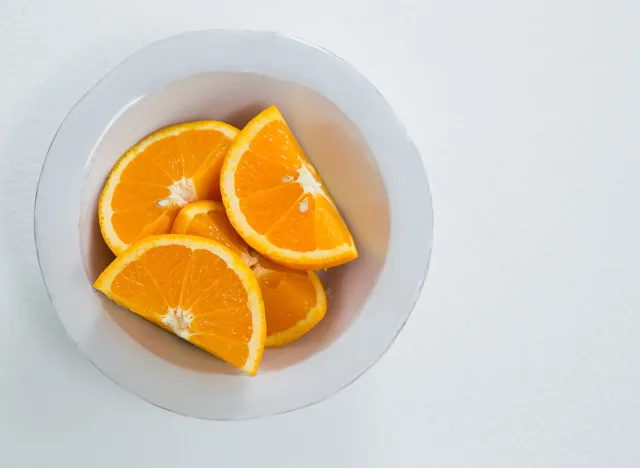

Known for their high vitamin C content, oranges are an antioxidant powerhouse. They help protect cells and support immune health. Research suggests that antioxidants such as vitamin C may also play a role in weight loss by helping to reduce inflammation.
Adding an orange to your breakfast is a delicious way to get a natural boost in sweetness and nutrients.
Sweet potato
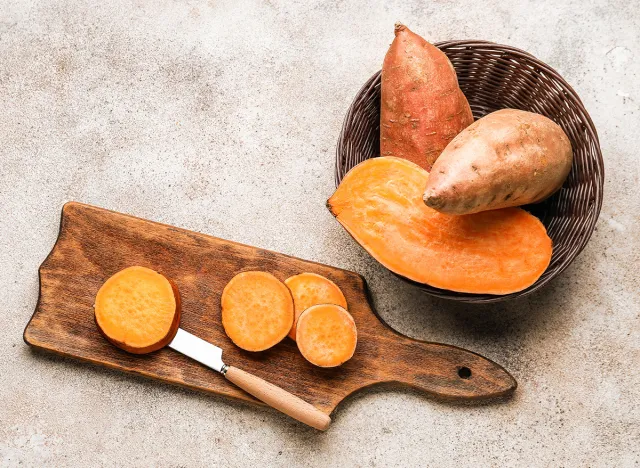

This root vegetable, especially the orange one, is naturally sweet and packed with beta-carotene, which the body converts into vitamin A. This nutrient supports vision, skin and the immune system. Purple sweet potato contain anthocyanins, a type of antioxidant that gives them their vibrant color. Although sweet potatoes are high in fiber and nutrients, be mindful of portion sizes to avoid excess carbs.
Quinoa
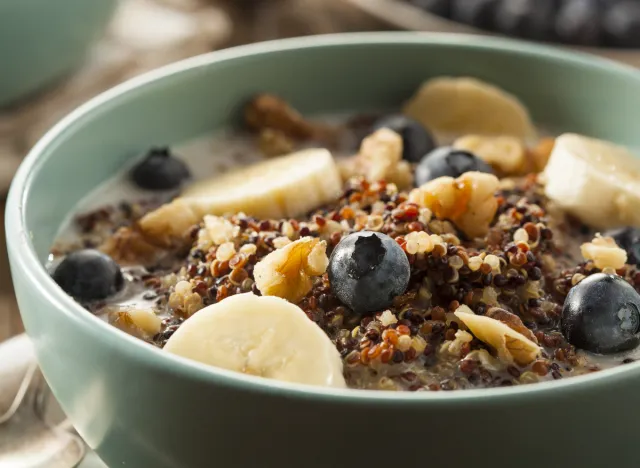

This little seed is a protein-packed, high-fiber addition to any breakfast. Quinoa is versatile and can be enjoyed warm as porridge and made either sweet or savory. Just ¼ cup of dry quinoa contains 4 grams of fiber, making it an excellent option for blood sugar control. Its high fiber and protein content makes it a particularly suitable choice for those managing type 2 diabetes, as it has a more gradual effect on blood sugar than other grains, which is beneficial for weight loss.
Frozen berries
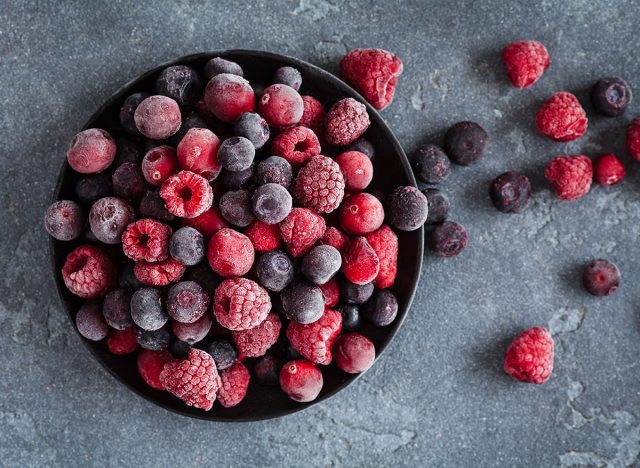

The frozen options offer the same nutritional benefits as fresh berries, making it a budget-friendly choice available year-round. They are rich in fiber, which supports digestion, and are loaded with vitamin C for immune health.
Toss frozen berries into a smoothie for a quick, delicious breakfast option that’s easy to prepare and perfectly portable. In addition, the frozen texture gives your smoothie a satisfying thickness without the need for ice.

